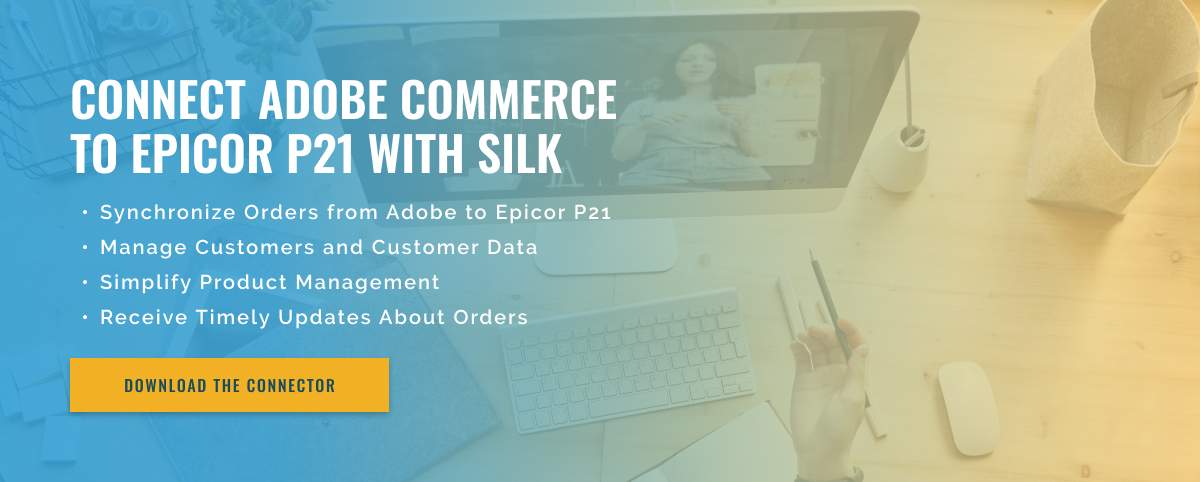3 minute read
Impact of ERP on Integrating Adobe Commerce with Epicor P21
In today’s business landscape, distributors are increasingly expanding their online presence and incorporating eCommerce into their operations. As digital sales channels evolve, distributors face the challenge of integrating their eCommerce platform with back-end systems to ensure smooth and efficient operations. This is where enterprise resource planning (ERP) software like Epicor P21 comes in handy. In this blog article, we explore the role of an ERP system in integrating Adobe Commerce with the Epicor P21 module for distributors.
What is Epicor P21? Epicor P21 is a widely used ERP system designed specifically for distributors and wholesalers. It helps streamline business processes, manage inventory levels, and provides insight into sales and financial data. The platform is highly customizable, making it a popular choice for distributors across a variety of industries.
What is Adobe trading? Adobe Commerce is an eCommerce platform that allows businesses to create and manage online stores. It offers a range of features such as inventory management, order fulfillment, and customer relationship management.
Adobe Commerce integration with Epicor P21 can provide distributors with numerous benefits, such as improving data accuracy, reducing manual work, and improving customer service. However, this integration process can be complex and time-consuming without the right tools and systems. This is where the ERP system comes in handy.
ERP plays a key role in Adobe Commerce integration with Epicor P21, acting as a central hub for all data and processes. It acts as an integration framework, ensuring seamless data synchronization between both systems. By consolidating data from various sources, ERP provides a holistic view of the enterprise, enabling better decision-making and greater efficiency.
One of the main benefits of using ERP for integration is the reduction of manual work. ERP allows for automatic data transfer between systems, minimizing the risk of human error and saving valuable time. This not only improves data accuracy, but also allows employees to focus on more important tasks. Additionally, ERP can improve customer service by providing real-time data on inventory levels, order status, and shipping information. This creates a more efficient and transparent customer journey, which can lead to greater customer satisfaction and retention.

